What to Do If There’s a Fire in Your Home
Accidental fires can be caused by different things, such as cooking on a stove or lighting candles, among other things. Whatever the reason, fires don’t give us much time to react, so it’s very important that we know what to do in order to stay safe in a situation like this.
5-Minute Crafts has prepared this guide to help you prepare yourself in case there’s a fire in your home.
❗Important: This article has been created for informative purposes only and does not replace professional advice.
1. Extinguish the fire yourself only if it’s possible.
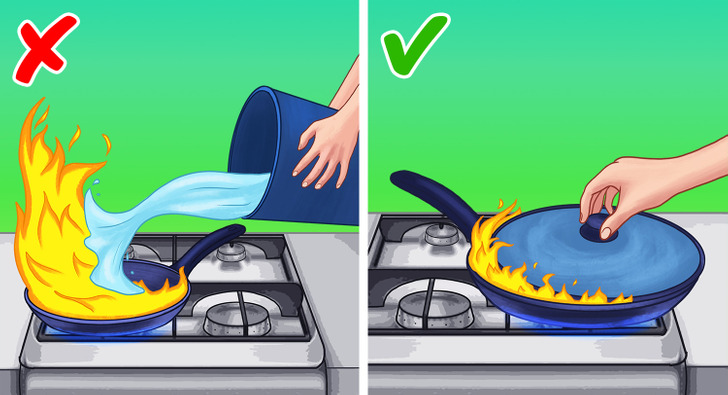
If the fire is very small and has just started, it’s possible that you can control it yourself. For example, if a frying pan has caught on fire, cover the flames quickly with a cookie tray or a metal lid. Leave it there until it’s cool enough to remove it. You can also pour baking soda or salt on it. Do not use baking powder, flour, or any other options that appear to be similar as they can have a different reaction and make the fire worse. For this reason, it’s also advisable to be sure you’re not confusing these ingredients with baking soda before using them.
🚫 Never try to extinguish a grease fire with water, as it will sink to the bottom of the frying pan and immediately evaporate, which will cause the grease to spread even more.
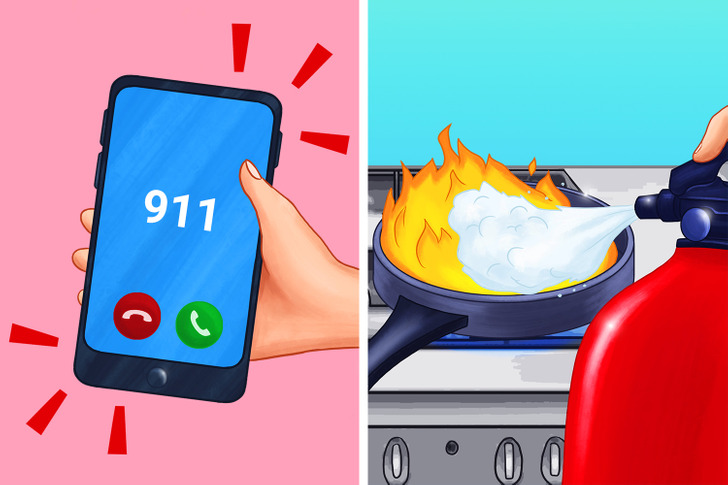
You can use a fire extinguisher if there’s one near you. However, before you start fighting flames with it, make sure that:
- The fire department has been alerted about the situation.
- The fire is still small and doesn’t seem to be spreading.
- There isn’t much smoke in the place.
- Everyone has evacuated or is leaving the house.
- There’s an exit behind you.
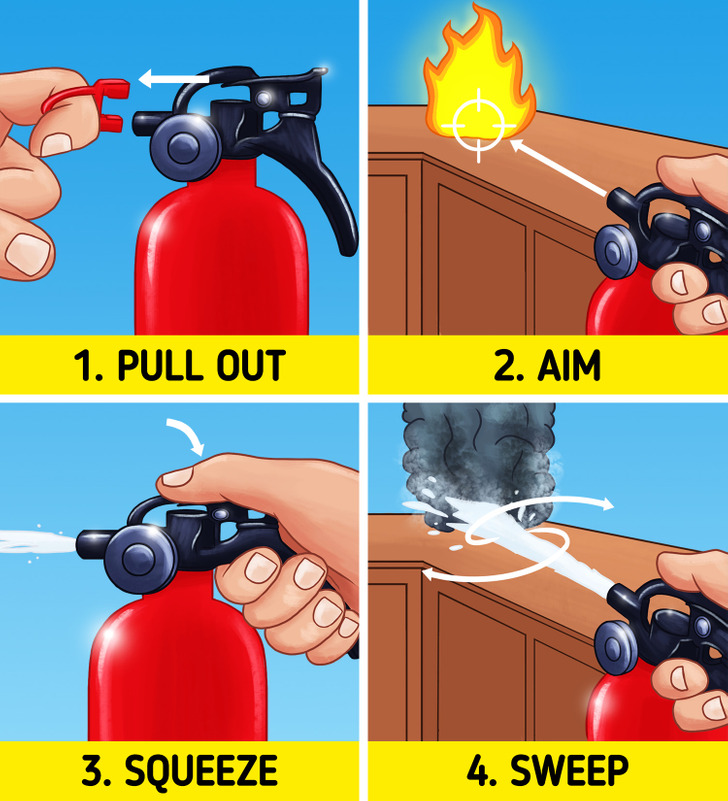
2. Alert everyone and evacuate the place.
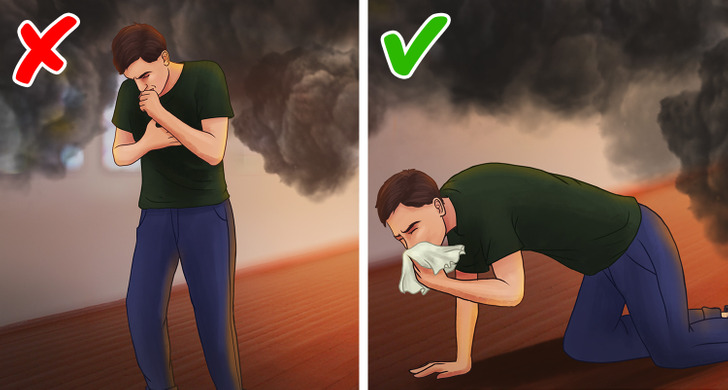
If the fire is spreading and you are not able to extinguish it yourself:
- Call the fire department or any other local emergency number. Pull fire alarms if there are any.
- Yell, “Fire!” as many times as necessary to make sure everyone knows about the situation and get out of the place immediately. Do not stop to grab any items.
- Close the doors as you leave to prevent the fire from spreading.
- If there’s too much smoke, crawl your way out, keeping your nose close to the floor where you can breathe easily. Remember that gasses are toxic and will go up to the ceiling first.
- Do not open any doors if their handles are warm. Test the temperature with the back of your hand and, if necessary, use a second escape route instead.
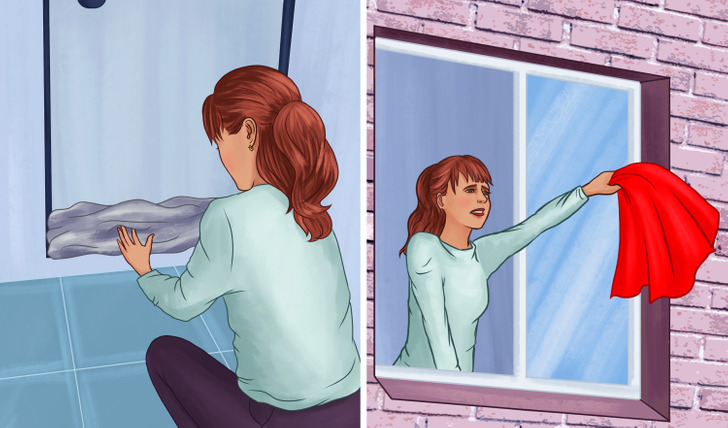
- If the smoke or flames are blocking your way out, stay in the room and close the doors. Then, quickly put a wet towel on any vents and under the door to prevent the smoke from seeping into the room. Call the fire department immediately if you haven’t done so yet. Open a window and wave a colored cloth or flashlight to ask for help.
- If your clothes catch fire, stop what you’re doing, drop to the floor, cover your face, and roll over and over, back and forth, until the fire extinguishes. Do not run, as it will only cause the fire to burn faster. Once the flames are completely out, pour cold water on the injured skin for 3 to 5 minutes. Then cover the area with a dry piece of cloth and get medical attention as soon as possible.
3. Stay away from the house.
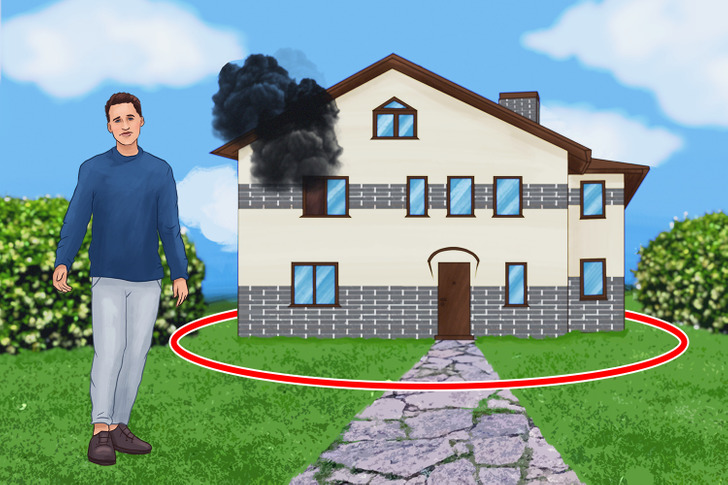
- Once you’re outside, tell the firefighters that you’re safe and let them know if there’s anyone missing. Don’t go back into the house. This will only slow down the firefighters’ work and you will put yourself in danger.
- Stay away from the perimeter of the house or building because part of the roof or siding could fall down.
4. Make sure your house can be inhabited and contact the necessary services.
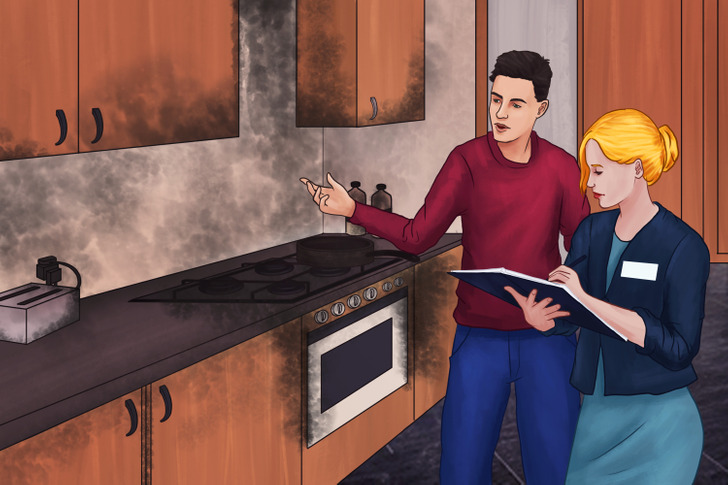
- After the fire has been extinguished, ask the fire department whether it’s safe to enter your house. If it isn’t, you may have to contact a local service for temporary housing or food.
- Contact your insurance company, if you have one, to get instructions related to protecting your property and restoring the damage caused by the fire.